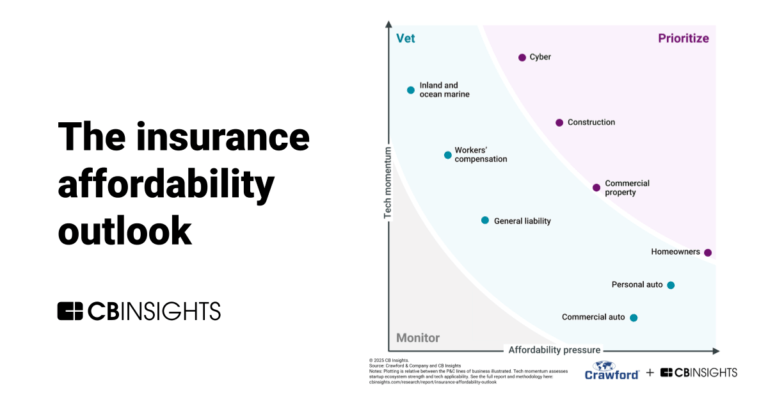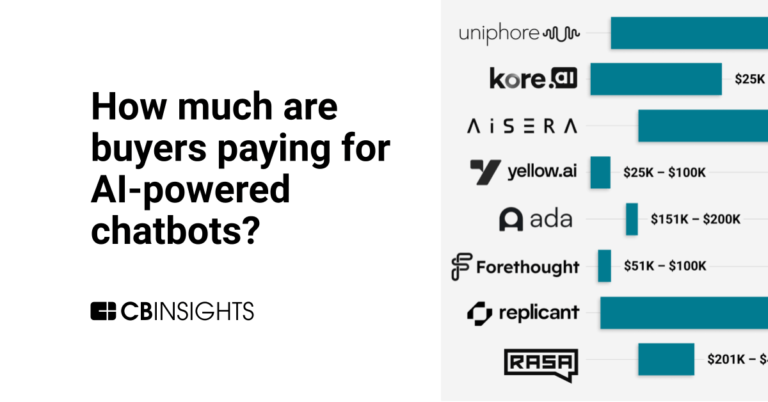Investments
371Portfolio Exits
49Funds
5Partners & Customers
1About Bloomberg Beta
Bloomberg Beta is an investment company that invests in early-stage businesses aiming to enhance operational efficiencies. The company provides both financial support and guidance to startups that improve business processes. It has published an open-source guide detailing the workings of its investment fund. Bloomberg Beta was formerly known as Bloomberg Ventures. It was founded in 2013 and is based in San Francisco, California. Bloomberg Beta operates as a subsidiary of Bloomberg.
Expert Collections containing Bloomberg Beta
Expert Collections are analyst-curated lists that highlight the companies you need to know in the most important technology spaces.
Find Bloomberg Beta in 1 Expert Collection, including Digital Lending.
Digital Lending
34 items
This collection contains alternative means for obtaining a loan for personal or business use. Companies included in the application, underwriting, funding, or collection process is included in the collection.
Research containing Bloomberg Beta
Get data-driven expert analysis from the CB Insights Intelligence Unit.
CB Insights Intelligence Analysts have mentioned Bloomberg Beta in 2 CB Insights research briefs, most recently on Oct 14, 2025.

Latest Bloomberg Beta News
Oct 21, 2025
at Fortune ‘s Most Powerful Women conference last week with a unified message: high failure rates are not a bug in AI adoption—they're a feature of learning how transformative technology actually works. The panel discussion, titled “ Working it out: How AI is transforming the office ,” tackled head-on a widely circulated MIT study suggesting that approximately 95% of enterprise AI pilots fail to pay off . The statistic has fueled doubts about whether AI can deliver on its promises, but the three panelists— Amy Coleman , executive vice president and chief people officer at Microsoft; Karin Klein , founding partner at Bloomberg Beta; and Jessica Wu , co-founder and CEO of Sola —pushed back forcefully on the narrative that failure signals fundamental problems with the technology. “We're in the early innings,” Klein said. “Of course, there's going to be a ton of experiments that don't work. But, like, has anybody ever started to ride a bike on the first try? No. We get up, we dust ourselves off, we keep experimenting, and somehow we figure it out. And it's the same thing with AI.” Klein went further, encouraging the audience to become what she called “ vibe coders ,” or people who use accessible AI tools to build applications without traditional programming backgrounds. Coleman echoed Klein's perspective, saying “this is all about experimentation.” “We're on that jagged frontier, which is we're going to have some wins, and then we're going to see that trough, and then we're going to have some more wins,” she added. The Microsoft executive, who shared that her own CEO challenged the senior leadership team to vibe code, emphasized that creating the right organizational culture matters more than the technology itself. “I think the study is really important because it actually reflects how many people feel right now, which is, is it really something that's going to help me at work? Will it give me more joy and take away the toil?” Coleman said. Wu provided important context in an attempt to reframe the MIT findings. “I think the actual study says that only 5% of the AI tools people are testing are making it into production. What's really interesting is if you actually take a step back and look at what percent of studies of IT tools being brought in actually made it into production before AI, it actually wasn't particularly high either,” she said, noting success rates for large enterprise technology deployments historically hovered around 10% or lower. Wu's company, Sola, builds what she described as “agentic process automation” tools that help enterprises automate manual back-office work. She emphasized that the sheer volume of AI experimentation happening now makes lower success rates inevitable. “My guess is, there's a lot more tools happening right, there's a lot more tools to test, there's a lot more things being brought in,” she said. “At the same time, AI is very new. It's going to hallucinate. You're going to have to work with experimentation in ways that previous [generations] wouldn't have.” The conversation moved beyond defending failure rates to discussing what successful AI implementation actually requires. Coleman stressed the importance of building “AI fluency” across workforces and recommended a collaborative approach where technical experts work alongside business users. “How do we pair somebody that's really good at either tech or continuous improvement, or some of these other sort of breakthrough ways to look at processes, and sit side-by-side and not make something for you, but do something with you so they could learn how to actually put AI into your workflow,” she said. Coleman also pushed back against the notion that enthusiasm for AI diminishes the value of human work. “The more we talk about AI, the more people think that we don't trust humans,” she said. “It's really important that we're talking about the criticality of humans in all these workflows. So, it's about talking about what time I get freed up to do what I can uniquely do as a human.” Wu outlined what she sees in successful customer deployments: a combination of top-down leadership support and bottom-up engagement from employees who understand daily workflows. “Leadership really enabling employees to test and build things safely obviously, but giving people the flexibility to experiment, try new tools, encourage them to use and build AI and help them build fluency,” she said. “Your companies are full of people that live and breathe the business and they've been around for decades, sometimes even centuries. And so for AI to be deployed really effectively, you need the tool to work really alongside the people who are doing the work every single day.” Klein emphasized that experimentation doesn't require enterprise-scale deployments. “We also see startups working side by side, bringing engineers and business leaders together,” she said. “Even if we're in a regulated industry, we can be trying this in our personal lives and you know using on the weekend for nonsensitive information and just starting to see some of how this technology works because that's really where you're going to get the gains, and advancements, and big ideas.” When an audience member asked what organizational conditions must be true for AI transformation to succeed, Coleman's answer revealed the cultural shift she believes is necessary. “You have to be okay with failure. You have to be okay with messy,” she said. “We're talking about the entry point of this transformation. You have to be okay with experimentation, and you have to be okay with that jagged up and down.” She added that companies need to embrace what she called “a learning organization” where “managers need to stop assessing tasks and start teaching learning.” The key conditions, she said, include “vulnerability and courage” as organizations navigate technology that moves faster than previous transformations. The discussion underscored a central tension facing enterprises: the risk of moving too slowly on AI adoption may ultimately exceed the risk of experimentation itself. You can watch the full discussion from Fortune ‘s Most Powerful Women event below: For this story, Fortune used generative AI to help with an initial draft. An editor verified the accuracy of the information before publishing. About the Author Dave Smith Editor, U.S. News Dave Smith is a writer and editor who previously has been published in Business Insider, Newsweek, ABC News, and USA TODAY. SEE FULL BIO Sponsored Stories
Bloomberg Beta Investments
371 Investments
Bloomberg Beta has made 371 investments. Their latest investment was in Sumble as part of their Series A on October 22, 2025.
Bloomberg Beta Investments Activity

Date | Round | Company | Amount | New? | Co-Investors | Sources |
|---|---|---|---|---|---|---|
10/22/2025 | Series A | Sumble | $30M | No | AIX Ventures, Canaan Partners, Marc Benioff, Nat Friedman, Square Peg Capital, Undisclosed Angel Investors, and Zetta Venture Partners | 2 |
10/21/2025 | Series B | Defakto | $30.75M | Yes | Adverb Ventures, J.P. Morgan, Michael Coates, The General Partnership, WndrCo, and XYZ Ventures | 4 |
9/8/2025 | Series A | Atolio | $24M | Yes | 6 | |
8/20/2025 | Series A | |||||
8/14/2025 | Series B - II |
Date | 10/22/2025 | 10/21/2025 | 9/8/2025 | 8/20/2025 | 8/14/2025 |
|---|---|---|---|---|---|
Round | Series A | Series B | Series A | Series A | Series B - II |
Company | Sumble | Defakto | Atolio | ||
Amount | $30M | $30.75M | $24M | ||
New? | No | Yes | Yes | ||
Co-Investors | AIX Ventures, Canaan Partners, Marc Benioff, Nat Friedman, Square Peg Capital, Undisclosed Angel Investors, and Zetta Venture Partners | Adverb Ventures, J.P. Morgan, Michael Coates, The General Partnership, WndrCo, and XYZ Ventures | |||
Sources | 2 | 4 | 6 |
Bloomberg Beta Portfolio Exits
49 Portfolio Exits
Bloomberg Beta has 49 portfolio exits. Their latest portfolio exit was goTenna on October 09, 2025.
Date | Exit | Companies | Valuation Valuations are submitted by companies, mined from state filings or news, provided by VentureSource, or based on a comparables valuation model. | Acquirer | Sources |
|---|---|---|---|---|---|
10/9/2025 | Acquired | 4 | |||
9/16/2025 | Acquired | 2 | |||
5/16/2025 | Asset Sale | Displai | 2 | ||
Bloomberg Beta Fund History
5 Fund Histories
Bloomberg Beta has 5 funds, including Bloomberg Beta IV.
Closing Date | Fund | Fund Type | Status | Amount | Sources |
|---|---|---|---|---|---|
6/30/2022 | Bloomberg Beta IV | $75M | 1 | ||
10/18/2019 | Bloomberg Beta III | ||||
7/19/2016 | Bloomberg Beta II | ||||
6/1/2013 | Bloomberg Beta I | ||||
Bloomberg Beta V |
Closing Date | 6/30/2022 | 10/18/2019 | 7/19/2016 | 6/1/2013 | |
|---|---|---|---|---|---|
Fund | Bloomberg Beta IV | Bloomberg Beta III | Bloomberg Beta II | Bloomberg Beta I | Bloomberg Beta V |
Fund Type | |||||
Status | |||||
Amount | $75M | ||||
Sources | 1 |
Bloomberg Beta Partners & Customers
1 Partners and customers
Bloomberg Beta has 1 strategic partners and customers. Bloomberg Beta recently partnered with Enveil on .
Loading...

